An episode that steals the spotlight
Here’s what’s to come in this episode:
We kick off this episode by raising the curtain on Angela's theater kid lore and spotlighting how neurodiversity and theater make a show-stopping duo.
Our hosts dive into how being "dramatic" and "attention-seeking"—classic theater kid traits—are often just the shining stars of neurodivergence.
Other overlaps between theater and neurodivergence include being perceived as pretentious or aloof, unapologetically blunt, and passionately dedicated to one’s interests.
Theater can serve as a safe haven for autistic individuals because it offers a structured and predictable environment. With everything carefully planned out and scripted, theater eliminates much of the uncertainty that can be overwhelming in everyday social interactions. This level of organization provides clear roles, boundaries, and expectations, allowing autistic folks to express themselves creatively without the stress of improvisation or ambiguity.
The sense of community found in theater can be profoundly meaningful to autistic individuals. The collaborative nature of productions fosters connections through shared goals and mutual support, creating bonds that feel genuine and purposeful. Additionally, the structure of theater often bypasses small talk, an interaction many autistic people find tedious or uncomfortable. Instead, conversations are focused on the work at hand—scripts, characters, and performances—which can feel far more engaging and meaningful for autistic folks.
Our hosts discuss how theater provides a healthy outlet for autistic individuals to mask, offering a safe space to navigate social expectations. They explore how typically challenging tasks, like making eye contact, become more manageable within a performance context—since it’s the character, not the individual, taking on these actions.
Routines, along with clear and visual communication, are key reasons why the structure of theater arts resonates with autistic individuals. The predictability of rehearsals, performances, and cues, combined with visual aids like scripts, stage blocking, and set designs, creates an environment that feels logical and accessible for autistic participants.
Matt and Angela explore autistic-coded characters in theater, offering insights into their representation while critiquing how some plays lean too heavily on the "neurotypical savior" trope.
From Leo Bloom in The Producers to Maria in The Sound of Music to Matilda to Elle Woods and Alexander Hamilton, we spotlight theater characters who subtly display autistic traits you might not have noticed before.
Our hosts delve into Stephen Sondheim’s work, highlighting how his hyper-focus and emotional intensity reflect traits commonly associated with autism.
Through engaging discussions and thought-provoking examples, this episode celebrates the beautiful intersections between theater and neurodivergence, showing how the stage can be a haven for autistic expression and representation.
“Being in front of an audience of 500 or 2,890 people, that’s a very specific number. Being in front of an audience of 500 or 2,890 people is very easy for me. The roles are incredibly clear, logical, and laid out. I am on stage. You are sitting in the seats watching me. I am playing a character and that is what you expect, want, and are paying for. The conversations onstage are scripted and written better than the ones in my real life.” - Matt
“One of my biggest social challenges is I will share a piece of information and it’s so obvious to me what the response is, which is usually something like ‘thank you, that was helpful information, my goodness’. And then the response I get is so different. It might be something like, ‘you’re fired’, or it will be like, ‘thank you’, and then I find out they have told five people I’m a pretentious asshole. And I’m like, how do these things not match up? But when there’s a script, even if it’s a Kafka play, where things don’t make sense, you see it and it’s fixed in time and it’s going to be logical every time.” - Angela
“I would love for somebody to go up and give me a bullet point brochure: Welcome to the neighborhood. Trash is on this day. You are allowed to have this. This is when this happens. This is when that happens. This is when that happens. I want a schedule. I want knowledge.” - Matt
Have you ever felt the ups and downs of life on the stage? In today’s episode, Matt and Angela dive into how neurodivergent perspectives align with the unique world of theater. Thanks for tuning in! Share your thoughts in the comments, and use #AutisticCultureCatch to connect with fellow listeners. Which moments from their discussion resonate with your own theater experiences?
Resources:
Jenna Lourenco- www.jennalourenco.com - There is a database there of plays featuring autistic characters and a growing list of openly autistic playwrights in the English-speaking world.
Mickey Rowe Our Differences are Our Strengths: Neurodiversity in Theatre
https://www.americantheatre.org/2015/05/04/the-curious-incidence-of-theatre-on-the-autism-spectrum/
https://howtodanceinohiomusical.com/
Maria from the sound of music - https://www.tiktok.com/t/ZPRETdLCW/
Up Close and Very Personal With The Real Stephen Sondheim
Stephen Sondheim Blackwings Sold at Auction
Blackwing Pencils - https://www.hamiltonpens.com/blogs/articles/the-blackwing-pencil-culture-controversy-and-creativity
*Related Episodes:
Follow us on Instagram
Find us on Apple Podcasts and Spotify
Learn more about Matt at Matt Lowry, LPP
Join Matt’s Autistic Connections Facebook Group
Learn more about Angela at AngelaKingdon.com
Angela’s social media: Twitter and TikTok
Our Autism-affirming merch shop



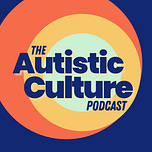

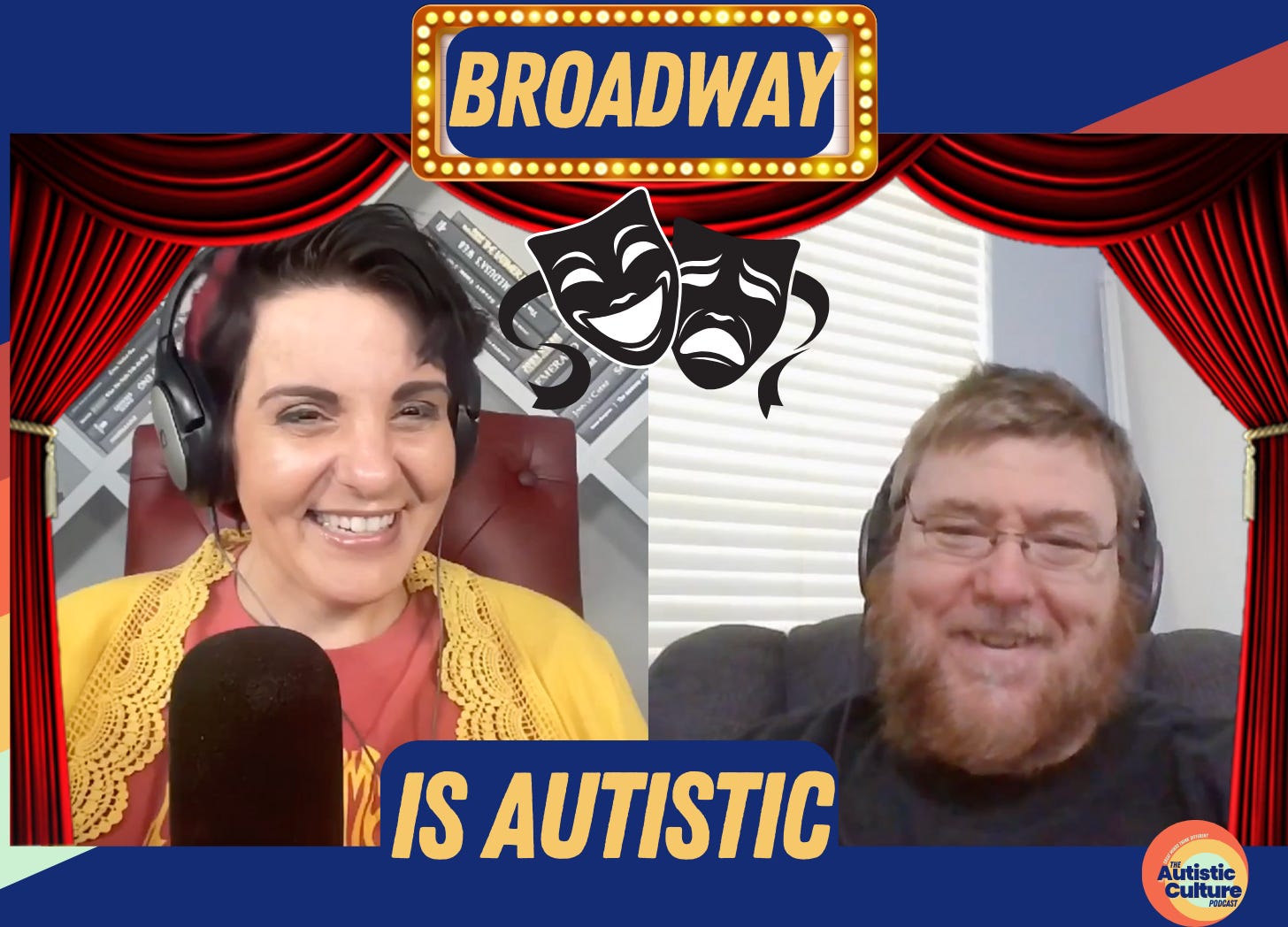


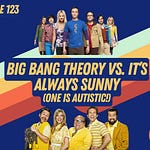
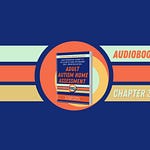



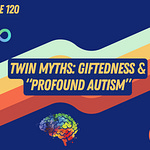

Share this post